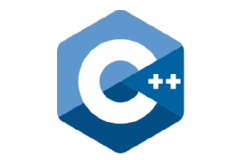Introduction
- The C Language and its Advantages
- The Structure of a C Program
- Writing C Programs
- Building an Executable Version of a C Program
- Debugging a C Program
- Examining and Running a C Application Program
Data Types and Variables
- Data Types
- Operands, Operators, and Arithmetic Expressions
Input/Output Management
- The Input/Output Concept
- Formatted Input Function
Control-Flow Statements
- The Control-Flow Program Statements
- Looping Statements
- The Data-checking process
Modular Programming with Functions
- The C Function
- Passing Data to Functions
- Passing an Address to Modify a Value in Memory
- Using Functions in the Checkbook Program
- C Standard Library Functions
Arrays, Pointers, and Strings
- Arrays , Pointers , Strings
- Using Arrays, Strings, and Pointers in the Checkbook Program
Structures
- Structures
- Arrays of Structures
- Passing Structures to Functions
- Nesting Structures
File Input/Output
- Command-line Arguments
- Combining Command-line
Introduction to C++
- Creating a project
- Writing, compiling and running a program
Variables and data types
- Expressions
- Constants
- Operators
- Type conversions
Looping constructs: while, do…while, for loops
- If…else statements
- Switch/case construct
Functions
- Passing arguments
- Function prototyping
- Default argument initializers
- Inline functions
Arrays
- Array initialisation
- Multi-dimensional arrays
- Character arrays
- Working with character strings
Storage Classes
- Global variables
Pointers
- Pointer and arrays
- Pointers to character strings
- Arrays of pointers
- Memory slicing
- Pointers to functions
C++ classes
- Data members and member functions
- Creating objects
- The new and delete operators
- Friends to a class
- Class initialisation
Reference types
- Reference type arguments
Function overloading
- Operator overloading
Copy constructor
- Assignment operator
Template classes
- Static class members
- File streams
Inheritance
- Base classes and derived classes
- Inherited member access
- Base class initialisation
- Protected members of a class
Virtual functions
- Virtual destructors
Virtual base classes
- Virtual base class member access
- Constructor and destructor ordering
Exception handling
- try…throw…catch block
- Nested catch handlers







